QuestionI've had sparky, my male hypo leopard gecko, 7/8 months old, for almost a month now and I am having real difficulty feeding him something he likes.
When we first got him the breeder said that he was feeding him 3/4 crickets every other day and mealworms everyday so we started with that. For the first 5 days he didn't eat a thing and on the 6th day he ate 2 crickets. Just as we started getting him into a routine (he never ate ANY mealworms but we gave him a new supply regularly just in care) he stopped eating for 4 days we were really stuck to phoned the breeder and he said it was really strange because apparently he was eating perfectly. He said try locusts. Sparky is by now loosing weight rapidly so we fed him 3 waxworms plus locusts. I hand fed him the wax worms and he LOVED them and that night I realised he was becoming more and more active. It's been 3 days and all he has eaten is 4 wax worms. I know this is really unhealthy so I need more ideas. He hasn't touched the locusts and I'm stuck. Can you make some suggestions please??
AnswerSparky isn't being fussy - he's sick. Take him to an experienced reptile veterinarian, right away.
Failure to eat combined with rapid weight loss is a clear sign of illness in reptiles. He should be checked for possible infections or parasites.
Be sure that his environment is correct: Ambient air temperature should be 80F, and hot spot should be 90F on the cage floor (an indoor/outdoor thermometer with a remote probe will give you accurate temperature readings). He should have a dry hide, and a humid hide box, and fresh clean water in a shallow dish. All feeder insects should be dusted with a quality calcium supplement containing vitamin D3. Stop handling him until he is completely recovered (handling is stressful for reptiles).
Parasites can be transmitted from live feeders, so a yearly fecal exam is recommended. However, given the fact that he's only been with you for 1 month, I would suspect an infection of some kind might be the culprit. The stress of being moved to a new environment may have weakened his immune system. (Of course, the problem might also be something else; either way, a vet is needed, as there is no way to treat such things at home).

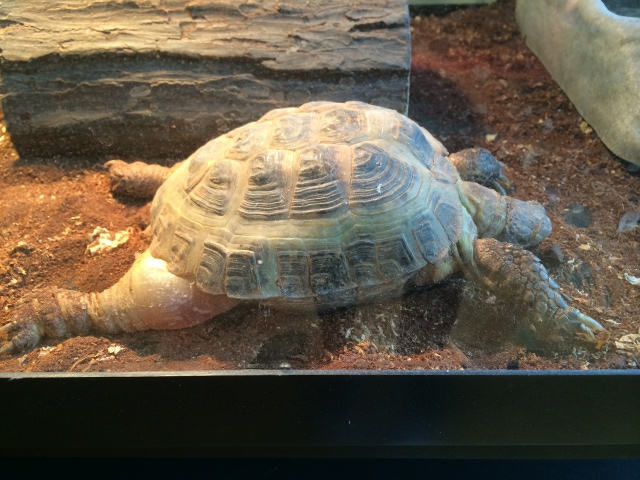 My tortoise
Question
Tortoise
My tortoises back legs have be
My tortoise
Question
Tortoise
My tortoises back legs have be
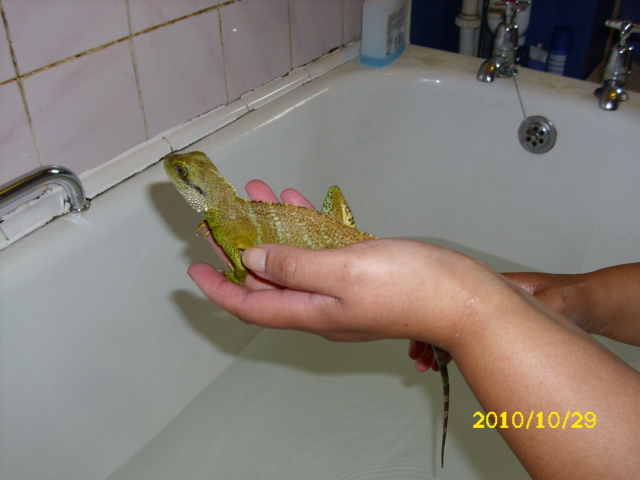 Re: water dragon
Question
Rex the water dragon
Hi Tracie,
My water drag
Re: water dragon
Question
Rex the water dragon
Hi Tracie,
My water drag
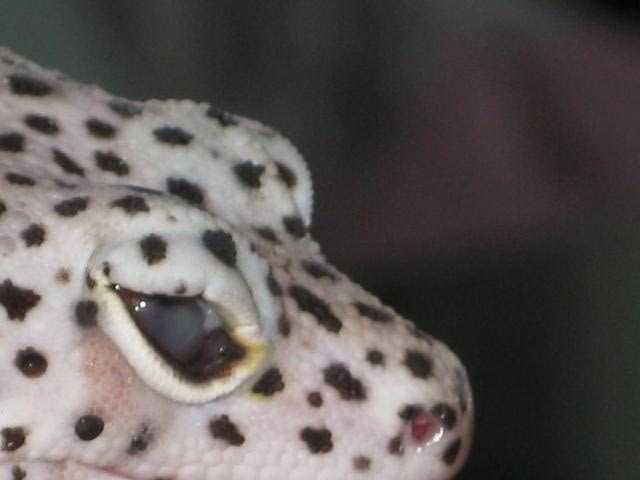 Leopard Gecko Eye Infection
Question
Similar looking situat
Hi! I have a leo
Leopard Gecko Eye Infection
Question
Similar looking situat
Hi! I have a leo
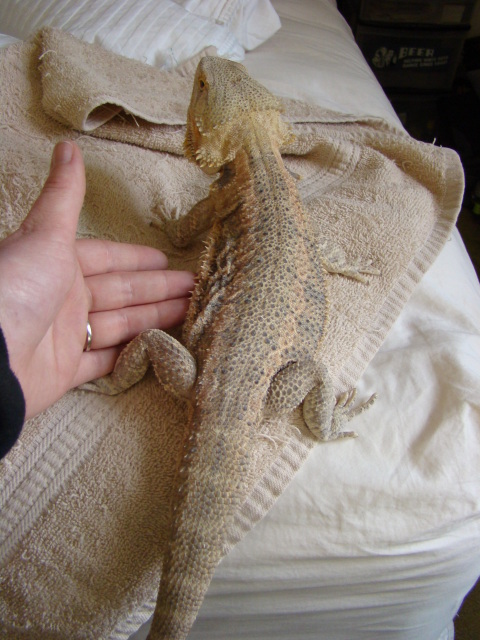 scared, lethargic and not eating beardie- Came on suddenly
QuestionQUESTION: Ive had Brutus- a bearded dragon for
scared, lethargic and not eating beardie- Came on suddenly
QuestionQUESTION: Ive had Brutus- a bearded dragon for
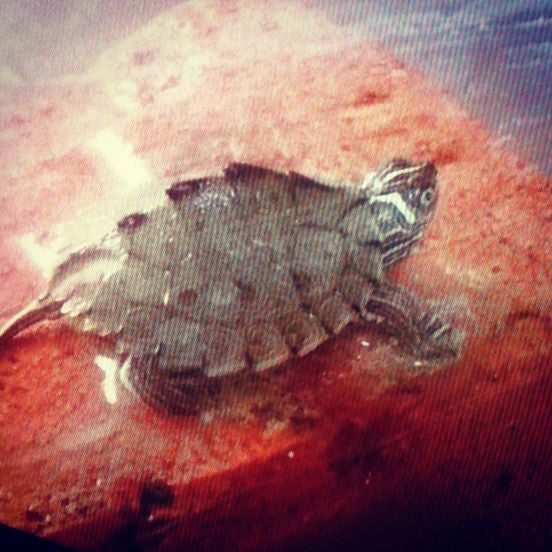 UV light vs LED light
QuestionQUESTION: I have an Wichita Map Turtle,(Though
UV light vs LED light
QuestionQUESTION: I have an Wichita Map Turtle,(Though